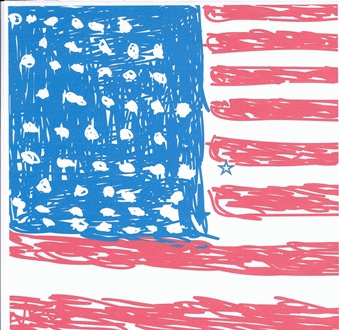Election law is a brand-new field, inaugurated in the mid-1990s by Professor Dan Lowenstein, an expert in the field to whom Election Law and Democratic Theory (Burlington, VT: Ashgate, 2014) is dedicated. [1] The author David Schultz's concern in this book is to ground this new field in democratic theory, which he finds a crucial next step to clarify the multiple inconsistencies apparent in Supreme Court decisions across decades. The field of election law so far is limited to lawyers and law professors, but election law is "the jurisprudence that puts democracy into action," "the connective tissue . . . linking the values and theory to the institutions. Election laws are the rules of the game that tell us how the game of democracy is played." Democratic theory "ask[s] what it means to be a democracy . . . about what the fundamental values of an American democracy are, . . . to guide interpretation of the Constitution."
"How often [Supreme Court decisions address or implicate democratic values yet fail to articulate a theory."
The most quoted authority in the book is Robert Dahl, whom the author calls "the best democratic theorist of our time."
Just as democratic theory is a subject relevant to so many fields and pursuits, so it should be a reference point for election law. Without it, the author finds instead that SCOTUS "'decisions seem less principled, more case specific, and simply jumbled.'" What there should be is a hierarchy of interrelated subject matter, a "nesting" arrangement, with a metaphoric three "bowls": the smallest is election law, the Constitution is in the middle, and containing both of them is the largest of all, the foundation, democratic theory.
David Schultz himself is a professor of political science and election law at Hamline University and the University of Minnesota, well qualified to expand academic horizons and bring us all along. It's all about American democracy after all, clearly and accessibly written.
His stunning bio reveals an "author of 28 books and 100+ articles on various aspects of American politics, election law, and the media and politics, . . . regularly interviewed and quoted in the local, national, and international media on these subjects including the New York Times, Wall Street Journal, Washington Post, the Economist, and National Public Radio."[2]
In his own words: I am an oddball type of academic. I have taught several others of political science, public administration, criminal justice, economics and economic development, and business classes. More of a generalist in a world of specialization. I have also worked in government and actually worked on more than 50 political campaigns in the past. More than simply an armchair type of person.
Schultz also speaks highly of the presidential candidate most of us at OEN revere, Senator Bernie Sanders. He adds that What is interesting is that Sanders growth in support is far better over the last month than Trump but the later gets all the media. Clinton is vulnerable, Bush is a horrible candidate. I think Bernie may surprise. Trump has staying power with a weak field. If it is Trump versus Clinton it will be closer than we think.
*****
The quintessence, the ultimate proof, writes Schultz, of a crying need for democratic theory to ground the field of election law, is the outcome of the notorious Bush v Gore "one time only" decision with the massive power to select the next president.
"If ever a statement revealed ad hocism and a failure to ground a decision in a broader theory about democracy, it was surely this one."
I asked the author how the situation would have been resolved were election law more grounded in democratic theory. Here is his answer (from an August 23, 2015 email):
1. Recall that Bush v Gore is actually two rounds of cases. The first was a Florida Supreme Court decision that was unanimous during the protest stage. The Supreme Court vacated that decision and asked for clarification by the Florida Supreme Court regarding the state law basis for the decision. Had the Florida Supreme Court acted promptly then the second case might never have reached the Supreme Court and it would have been handled simply as a matter of state constitutional law.
Next Page 1 | 2 | 3 | 4 | 5 | 6
(Note: You can view every article as one long page if you sign up as an Advocate Member, or higher).






